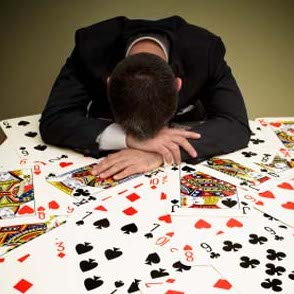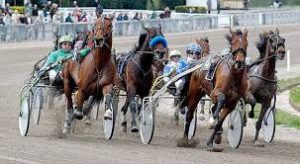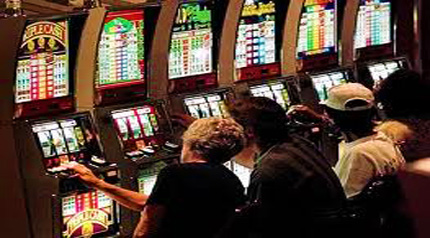 By Staff
By Staff
October 17, 2016
BURLINGTON, ON
Approximately 3.4 per cent of Ontarians have a moderate to severe gambling problem. This means that about 26,500 adults in the City of Hamilton and Halton Region are estimated to be negatively impacted.

You’ve lost it all – now what do you do? Help is available.
Many of these people think they will win big. The truth is that some will gamble to the point that they damage their finances, relationships and health. Problem gambling can be financially and emotionally devastating for the individual involved and the most important people in their lives.
“When gambling becomes a source of worry or stress, it’s important to listen to yourself”, says Jon Kelly, CEO, Responsible Gambling Council. “Ignoring changing feelings potentially puts both you and the people you care about at risk.”
The good news is that paying attention to how you feel about your gambling is the first step to early detection of a potential gambling problem.
Having mixed feelings about your gambling? If so, listen to yourself
If your gambling has stopped being fun and has become a source of stress and worry, it’s time to take a break and reflect.
Anxiety, guilt or frustration are common early warning signals that, if ignored, can lead to a potential gambling problem. The consequences of which can be emotionally and financially devastating not just for you but also for your family and friends.
During Problem Gambling Prevention Week, which runs in the City of Hamilton and Halton Region from October 17th to October 23rd, RGC is urging people to listen carefully to how they feel about their gambling.
What are some early signs of a potential gambling problem:
• Feeling guilty, anxious, frustrated or worried about your gambling.
• Thinking or talking about gambling more than usual.
• Gambling more to win back losses.
• Experiencing extreme highs from gambling wins and extreme lows from gambling losses.
• Getting irritated more easily or having less patience when dealing with normal, everyday activities.

The thrill of the horses thundering towards the finish line is one thing – the money you blew on a ticket that didn’t win is another.
What to do when you have mixed feelings:
• The most important thing is to listen to yourself and recognize that these feelings are there for a reason. When they arise, take a break from gambling and do something else. Get back to those other activities that you enjoy.
• Set a betting limit to what you can comfortably afford to lose and stick to it.
• Never chase losses by gambling more to win back lost money or get out of financial trouble. This usually leads to even greater losses.
• Set a time limit for your gambling and, when it’s reached, walk away.
• Bear in mind that gambling is not a way to make money. Virtually all people with gambling problems hold the false belief that they are due for a big win. That belief can feed the development of problems.
How to get help
There is free and confidential help available for those who feel they may have a problem. You can find contact information for local resources at www.knowthesigns.ca or you can call the Ontario Problem Gambling Helpline 1-888-230-3505.
For more about the emotional and behavioural signs to watch for and how to protect yourself, go to www.knowthesigns.ca.

They are the reverse of an ATM – you just keep putting money in.
Residents in the City of Hamilton and Halton Region can access local help at:
• Burlington: ADAPT (The Halton Alcohol, Drug, & Gambling Assessment, Prevention and Treatment Program – 905-639-6537 or 1-866-783-7073
• Hamilton: Alcohol, Drug & Gambling Services (ADGS) City of Hamilton, Public Health Services – 905-546-3606
• Ontario Problem Gambling Helpline – 1-888-230-3505
The Responsible Gambling Council (RGC) is an independent non-profit organization dedicated to problem gambling prevention. RGC works to reduce gambling risks by creating and delivering innovative awareness and information programs. It also promotes the adoption of improved play safeguards through best practices research, standards development and the RG Check accreditation program. RGC is committed to bringing together all perspectives in the reduction of gambling problems, including those of people with firsthand experience with gambling problems, gaming providers, regulators, policy makers and treatment professionals.



















